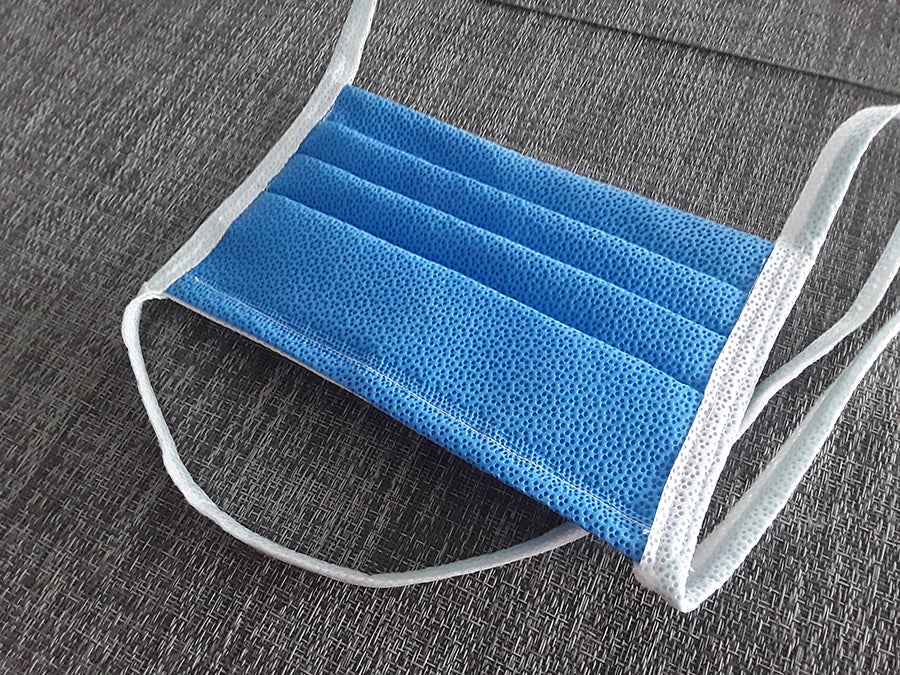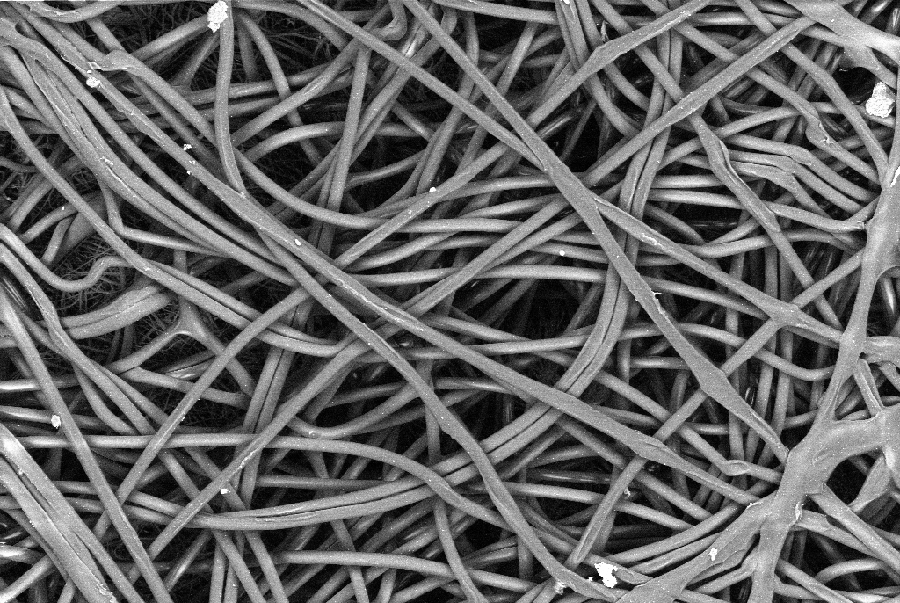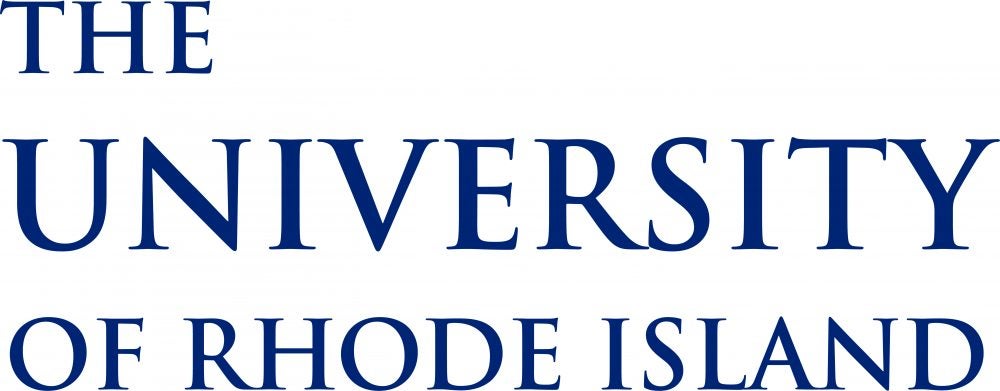Dr. Irene Andreu was unsure what she, operations manager for a lab that typically conducted marine research, could offer upon joining the University of Rhode Island’s Rapid Solvers group in March. An introductory meeting with colleagues across the state who are producing quick but accurate research on protective tools halting the COVID-19 pandemic changed her stance.
“I had never worked with anyone in the Rapid Solvers group before,” she says. “I told them that I could do electron microscopy, and everyone was very open, working at a fast pace but all together.”
Andreu manages the Rhode Island Consortium for Nanoscience and Nanotechnology, a core facility supported by RI NSF EPSCoR that houses high-tech microscopes capable of examining the composition of materials at the smallest of scales. Prior to the pandemic, for example, Andreu was helping students research how aquatic bacteria adheres to microplastics.
“In a month and a half, we created an extensive scientific community that’s manufacturing, prototyping, designing, and testing, paying out of pocket to create a more open, results-sharing environment. It’s amazing.”Dr. Irene Andreu, RI Consortium for Nanoscience and Nanotechnology
Now, she’s using the microscopes to better understand the effectiveness of certain filter materials for masks that hinder spread of the COVID-19 virus.
“I have been analyzing these materials to see a relationship between their fiber structure, porosity and performance,” says Andreu. “We have been looking at the size of the particles, for example, that go through the filtration materials s to see if there’s a particular size being let through.”
The materials are first tested by a custom-built system, designed by URI’s Dr. Manbir Sodhi, that pumps incense smoke across the surface of the filter, which is then brought to Andreu’s lab for examination. Andreu is also currently working alongside Dr. Vinka Oyanedel-Craver, professor of civil and environmental engineering at URI and an RI NSF EPSCoR investigator, in developing a new system for aerosol research and teaching.


Andreu and Sodhi have examined hundreds of different materials over the past months, from paper-based materials like coffee filters to HEPA fabrics.
“In the beginning, we had to make sure our methods were accurate and not misleading people with bad results,” she said. “The world’s response to the pandemic has been changing and in the first few weeks there was an information overload, with all of us trying to adapt to the high speed of results. I think we are all now in more of a groove.”
The goal for Andreu and URI’s Rapid Solvers’ Dr. Kunal Mankodiya, associate professor of electrical, computer, and biomedical engineering at URI, is to provide well-researched guidance for the public who are making masks and filters from materials not specifically designed for medical use. Rapid Solvers has also distributed a large number of face shields for first responders and nursing homes across the state.
“We’ve tested a lot of things that don’t work, trying different materials,” Andreu explains. “We want to give this direct feedback to those who are making masks at home.”
For Andreu, moreover, the experience has demonstrated how researchers can rally together and create well-tested, quantitative research and products on a rapid schedule.
“In terms of preparation for future pandemics, we have a network of people who can respond very quickly to needs at the state level,” she says. “Nobody was doing this type of materials research before, but in a month and a half we created an extensive scientific community that’s manufacturing, prototyping, designing, and testing, paying out of pocket to create a more open, results-sharing environment. It’s amazing.”


 RI NSF EPSCoR is supported in part by the U.S. National Science Foundation under EPSCoR Cooperative Agreements #OIA-2433276 and in part by the RI Commerce Corporation via the Science and Technology Advisory Committee [STAC]. Any opinions, findings, conclusions, or recommendations expressed in this material are those of the author(s) and do not necessarily reflect the views of the U.S. National Science Foundation, the RI Commerce Corporation, STAC, our partners or our collaborators.
RI NSF EPSCoR is supported in part by the U.S. National Science Foundation under EPSCoR Cooperative Agreements #OIA-2433276 and in part by the RI Commerce Corporation via the Science and Technology Advisory Committee [STAC]. Any opinions, findings, conclusions, or recommendations expressed in this material are those of the author(s) and do not necessarily reflect the views of the U.S. National Science Foundation, the RI Commerce Corporation, STAC, our partners or our collaborators.